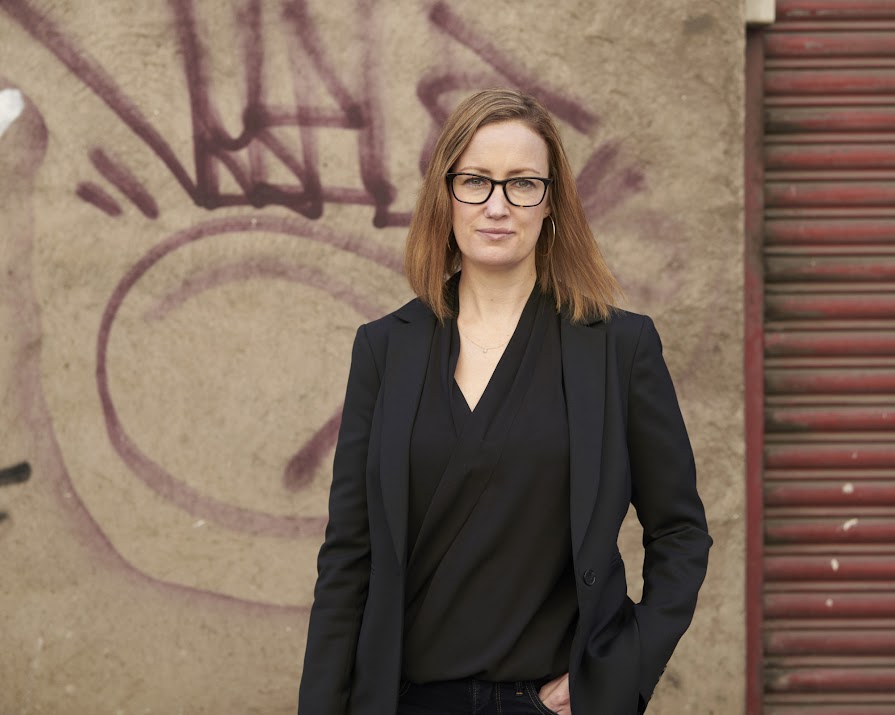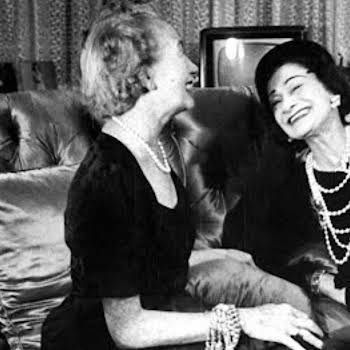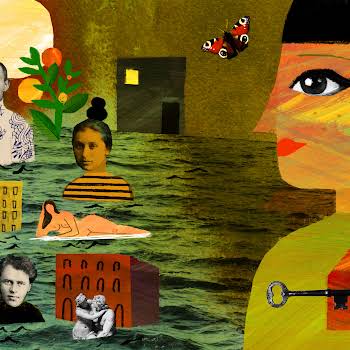
‘I didn’t talk about the gory details … I knew I’d be branded a bitter writer’
By IMAGE
29th Aug 2019
29th Aug 2019
Seven years ago, Lisa Tierney-Keogh received word that the Abbey Theatre wouldn’t run her play. She took the news hard, but after a stint in the US, the #WakingTheFeminists movement, and a lot of attention on the gender balance of the national theatre, her next attempt proved a success as well as a learning experience.
On a hot September day seven years ago, I was waddling my pregnant body cross-town along a New York City street. I stopped to take a breath in the humid air and pulled out my phone to check for an email I had been anxiously waiting for.
As my inbox refreshed, I leaned against the warm cement of a building wall and opened a message telling me that the play I had been writing for the Abbey Theatre was rejected.
I remember this day vividly. My husband left work and met me on the street and I wept into his shoulder. My father was visiting with a friend and we made our way to the bar where they were playing pool. When I broke the news to my dad, I could see the protective anger rising in him. Something wasn’t right. Rejection is part of being a playwright, but this felt different. This felt unfair. It felt unjust. It felt, wrong.
In that moment, I gave up on my dreams of ever seeing my work on stage in Ireland. I muted everyone I knew who worked in Irish theatre on social media so I could drown out the voices that would be a constant reminder of the painful fact that my country didn’t want me. To this day, it remains the most difficult rejection I have ever received. And believe me, I’ve had a fair few of those.
I didn’t talk about the gory details of how it all went down because I knew I would be branded as a bitter writer. I knew that as a woman, it would sit particularly badly. Because women were not allowed to speak of injustices. We were supposed to be silent, accept our lot, and not disrupt the structures in place to keep us this way.
Motherhood ensued. Life continued. My worldview expanded and I focused my attentions on building a body of work relevant to the place I was living in. But inside, an unnamed hurt was growing. A sense that no matter what I did, the odds were stacked against me. I suppressed it and kept going. Surely if I just worked hard enough, somebody would notice my work?
#WakingTheFeminists
Three years after this devastating blow to my confidence, I found myself on Facebook reading angry comments and furious reactions to the all-male 2016 season at the Abbey. With nothing to lose, I dived in. And the rest, as they say, is history.
The feeling I’d had on that September day back in 2012 was real. The wrong I had felt was real. When we analysed the statistics at Ireland’s national theatre over the previous ten years, the number staring back at us was grim: 22 per cent of the plays being produced at the Abbey were written by women.
I began to shout. I got loud. Real loud. What were they going to do, not produce my plays? I had nothing to lose. So I became as vocal as possible to amplify the voices of as many women as I could. As I got deeper and deeper into #WakingTheFeminists, I began to see the extent of the damage and the depth of the problem. One year later, there were two new directors at the helm of our national theatre and a whole industry had been forced to sit up and pay attention, whether they liked it or not.

When I look back at those years where silence was my only option, I can feel the destructive nature of power. It’s palpable. I know this because every time I am silenced or shut down now, I feel it more intensely. Once you wake up to this stuff, once you see it, you can never unsee it. Calling it out, speaking truth to power becomes easier than bearing the weight of your own silence.
“It broke my heart to leave my homeland, and I spent so much time feeling the empty loneliness that is familiar to so many emigrants.”
My journey to this place could not have happened if I had stayed in Ireland. I am convinced of this. It broke my heart to leave my homeland, and I spent so much time feeling the empty loneliness that is familiar to so many emigrants, but being so far away gave me the space to see the wood for the trees. In short: I grew up.
I had already made the decision to move home when Graham McLaren, one of the two new directors at the Abbey, wrote to me, asking to talk about a play idea. I’ve taken more general meetings than I care to remember, and for the sake of my sanity and mental health, I’ve learned not to believe anyone when they say, “we want to work with you”. But Graham was different. He meant it.
The process of moving your life from one continent to another is not dissimilar to writing a play. It takes about a year to plan and a year to execute properly. There are a lot of tears involved. And a lot of heavy lifting and sore backs. A month before I put all my worldly belongs on a truck to be shipped to Dublin, I delivered the first draft of a new play to the Abbey. I called it This Beautiful Village.
“My play was one small part of a larger movement to change the odious power structures that are controlling women’s lives. I don’t carry that lightly.”
This play is about power, and men and women. For most of my career as a playwright, I have felt powerless as I doggedly pursued dreams I had no idea were statistically unlikely to happen. It was, ironically, when I felt I had the least amount of power that I realised how powerful I actually am.
Unencumbered by fear of rejection, I started calling out the powers that be, the ones who make decisions about whose art gets a platform and whose doesn’t. And within this new world of speaking the truth, I began to find my true voice and sense of self.
Grievous assaults
Ireland has not been kind to women. The list of grievous assaults on the bodies of Irish women is long. Work has been done, but there’s a lot more to do. I firmly believe that women cannot have social and economic equality without bodily autonomy. On the whole island of Ireland, women’s bodies are still being controlled. There are powers at work that must be dismantled.
In trying to come at this artistically, I felt overwhelmed by the magnitude of the problem. It took a long time for me to realise that my play was one small part of a larger movement to change the odious power structures that are controlling women’s lives. It’s a lot to take on, and I don’t carry it lightly. But I am extraordinarily grateful that I get the chance to try.
Wild horses couldn’t drag me back to America, but I have so much gratitude for the lessons I learned there. The biggest one of all: how to be myself in my home country. It took me ten years and a lot of distance to figure out the power of my voice and how I could best use it.
I wrote This Beautiful Village to build a connection for people who feel lost right now. Crazy things are happening in the world and power systems are being built up and taken down. In Ireland, we have this wild progress and stubborn past clashing together at lightning speed. I feel a duty as a playwright to capture this moment. When my show goes on stage this month, I want audiences to feel seen, to feel a little less alone. If there’s anything I’ve learned as an emigrant, as a woman, it’s that loneliness is what hurts the most. But we’re all in this together. And now that I’m on home turf, I understand this better than I ever did.
This Beautiful Village by Lisa Tierney-Keogh runs at the Abbey Theatre September 2-14, abbeytheatre.ie.

This article originally appeared in the September issue of IMAGE Magazine, out now.
Portrait of Lisa Tierney-Keogh by Ros Kavanagh























